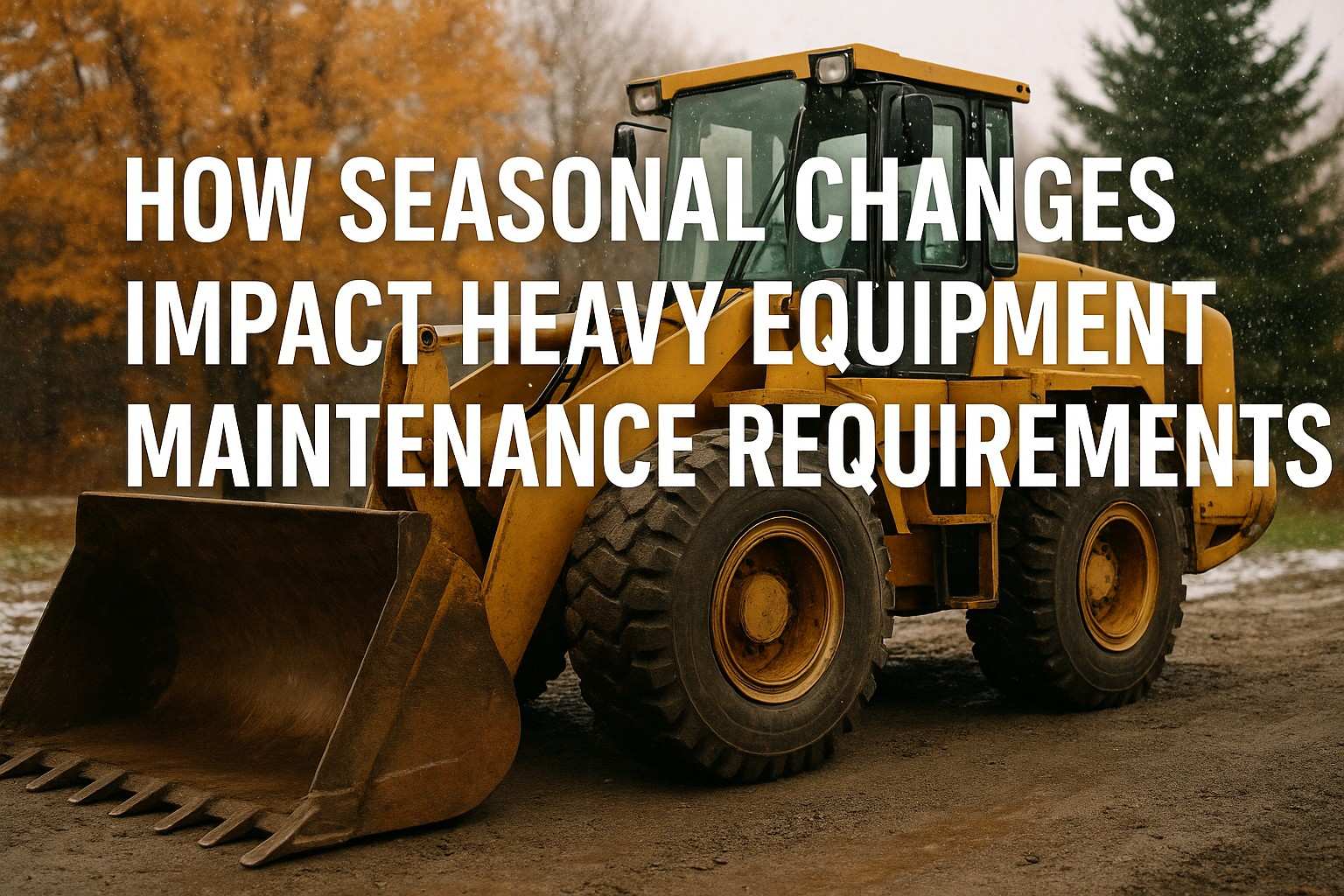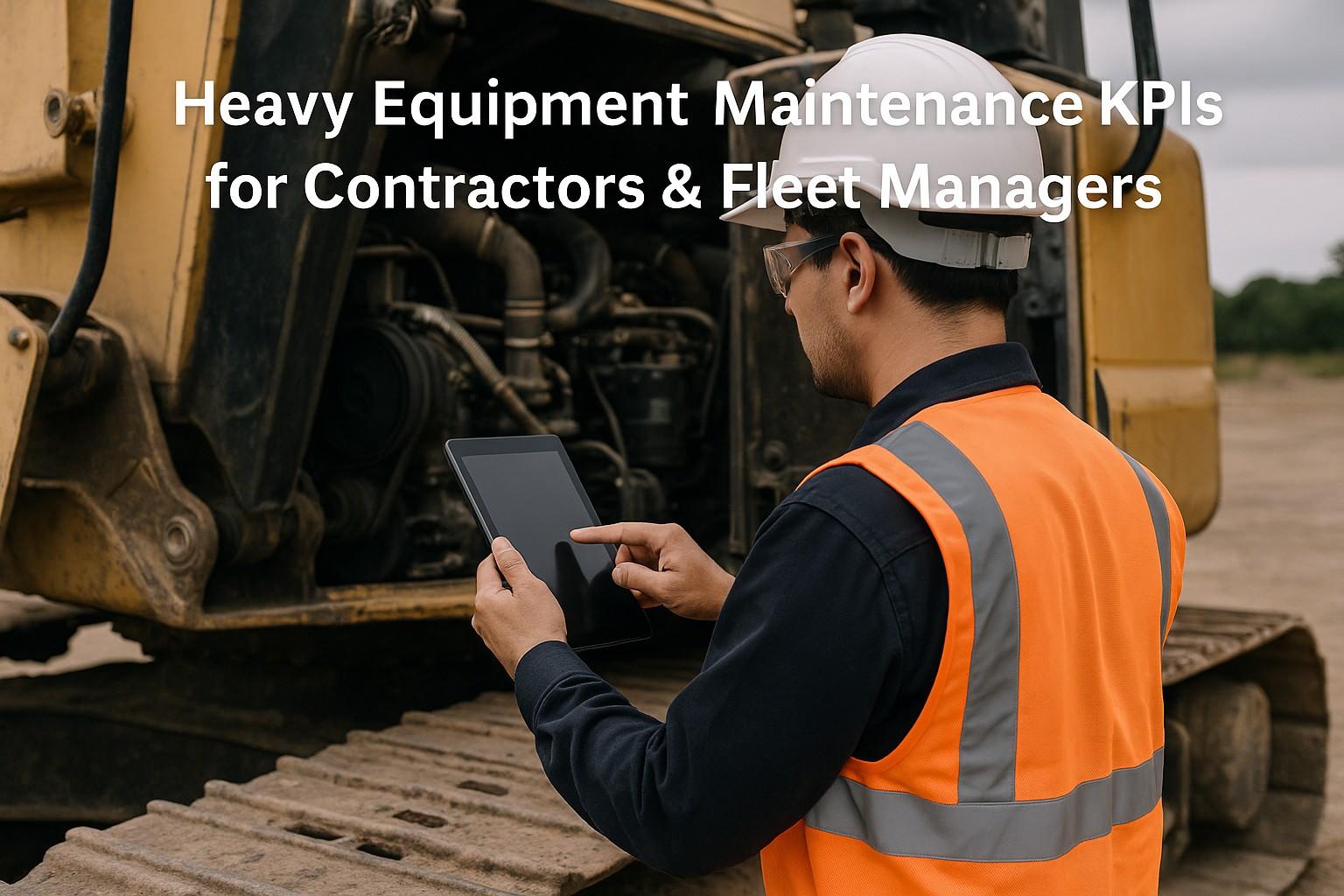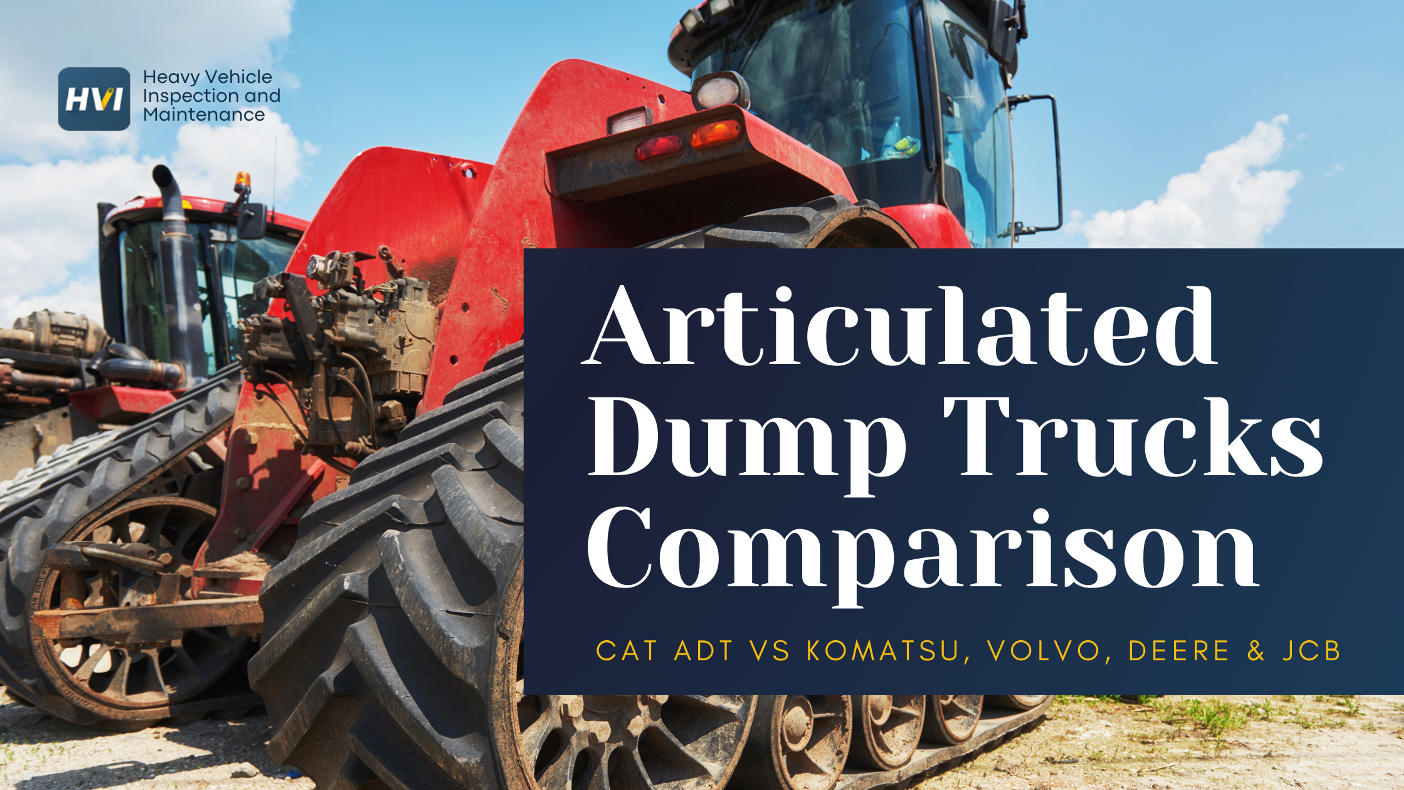The construction industry is constantly evolving, with new technologies and trends emerging to improve efficiency, productivity, and sustainability. One of the most significant debates in recent years has been the choice between electric and diesel construction equipment. As environmental concerns and fuel costs continue to rise, many construction companies are considering the switch to electric equipment. However, diesel equipment still holds a prominent place in the industry due to its power and reliability. In this blog post, we'll explore the pros and cons of electric vs. diesel construction equipment, helping you make an informed decision for your construction business. Android| iOS
Ready to optimize your equipment management? Whether you're running electric or diesel equipment, proper tracking is essential. Sign up for HVI App or book a demo to see how we can help streamline your fleet management.
Electric Construction Equipment: The Pros
1. Lower Environmental Impact
One of the most significant advantages of electric construction equipment is its lower environmental impact. Electric motors produce zero emissions at the point of use, reducing the carbon footprint of construction projects. As sustainability becomes an increasingly important factor in the industry, electric equipment can help companies meet their environmental goals and comply with regulations.
Electric vs. Diesel: Pick What Fits Your Site
Compare TCO, runtime, torque profile, charging/fueling logistics, noise/emissions limits, and incentives. Match powertrain to your duty cycle—not hype.
Consider ambient temps • Operator training • Utility access & demand charges
2. Reduced Noise Pollution
Electric construction equipment operates more quietly than diesel counterparts, significantly reducing noise pollution on job sites. This is particularly beneficial for projects in urban areas or near residential neighborhoods, where noise restrictions may apply. Quieter operation also improves communication and safety on the job site.
3. Lower Operating Costs
Although electric construction equipment may have higher upfront costs, it offers lower operating costs in the long run. Electricity is generally cheaper than diesel fuel, and electric motors are more efficient, resulting in reduced energy consumption. Additionally, electric equipment has fewer moving parts, leading to lower maintenance costs and less downtime.
4. Instant Torque and Smooth Operation
Electric motors provide instant torque, allowing for quick and responsive operation. This can be particularly advantageous for tasks requiring precise control, such as excavation or material handling. Electric equipment also offers smoother operation, reducing operator fatigue and improving overall productivity.
Electric Construction Equipment: The Cons
1. Limited Runtime and Charging Infrastructure
One of the main drawbacks of electric construction equipment is its limited runtime due to battery capacity constraints. While advances in battery technology have improved runtime, electric equipment may still require more frequent charging than diesel equipment. Furthermore, charging infrastructure may not be readily available on remote job sites, limiting the practicality of electric equipment in certain situations.
2. Reduced Power Output
Electric construction equipment may have reduced power output compared to diesel counterparts, particularly for heavy-duty applications. While electric motors can provide instant torque, they may struggle with sustained high-load tasks. This can limit the suitability of electric equipment for certain projects or require the use of larger, more expensive electric models.
3. Higher Upfront Costs
Electric construction equipment often comes with higher upfront costs compared to diesel equipment. This can be a significant barrier for smaller construction companies or those with limited budgets. However, it's important to consider the long-term cost savings in terms of fuel and maintenance when evaluating the overall value of electric equipment.
Considering the switch to electric equipment? Make an informed decision with data-driven insights. Book a demo to see how HVI App can help you analyze your equipment costs and ROI, or sign up now to get started.
Diesel Construction Equipment: The Pros
1. High Power Output and Durability
Diesel construction equipment is known for its high power output and durability. Diesel engines can handle heavy loads and sustained operation, making them suitable for a wide range of construction tasks. Diesel equipment is also built to withstand tough job site conditions, offering reliable performance in challenging environments.
2. Longer Runtime and Refueling Convenience
Diesel construction equipment typically offers longer runtime between refueling compared to electric equipment. This is particularly advantageous for projects in remote locations or those requiring continuous operation. Additionally, diesel fuel is widely available, and refueling is generally quicker than charging electric equipment.
3. Lower Upfront Costs
Diesel construction equipment often has lower upfront costs compared to electric alternatives. This can make diesel equipment more accessible for construction companies with limited budgets or those just starting. However, it's important to consider the long-term operating and maintenance costs when comparing the overall value of diesel vs. electric equipment.
Diesel Construction Equipment: The Cons
1. Higher Emissions and Environmental Impact
Diesel engines produce higher levels of emissions, including carbon dioxide, nitrogen oxides, and particulate matter. These emissions contribute to air pollution and can have negative impacts on the environment and human health. As environmental regulations become more stringent, construction companies may face pressure to reduce their reliance on diesel equipment.
2. Increased Noise Pollution
Diesel construction equipment is generally louder than electric alternatives, contributing to noise pollution on job sites. This can be a concern for projects in urban areas or near residential neighborhoods, where noise restrictions may apply. Loud equipment can also impact communication and safety on the job site.
3. Higher Operating and Maintenance Costs
Diesel construction equipment typically has higher operating costs due to fuel consumption. Diesel prices can be volatile, making it difficult to predict and budget for fuel expenses. Additionally, diesel engines have more moving parts than electric motors, leading to increased maintenance requirements and potential downtime.
Maintenance Considerations
Regardless of whether you choose electric or diesel construction equipment, proper maintenance is crucial for optimal performance, safety, and longevity. Here are some key maintenance considerations:
Regular Servicing: Follow the manufacturer's recommended service intervals for oil changes, filter replacements, and other routine maintenance tasks. This helps prevent breakdowns and extends the life of the equipment.
Battery Care: For electric equipment, proper battery care is essential. Follow the manufacturer's guidelines for charging, storage, and maintenance to ensure optimal battery performance and longevity.
Fluid Management: Regularly check and top off fluids, such as hydraulic fluid, coolant, and lubricants. Use the recommended fluids specified by the manufacturer to avoid damage to the equipment.
Tire Maintenance: Inspect tires regularly for wear, damage, and proper inflation. Proper tire maintenance improves fuel efficiency, safety, and overall performance.
Operator Training: Ensure that operators are properly trained on the safe and efficient use of the equipment. Regular training updates can help prevent accidents and improve productivity.
Simplify your maintenance tracking! HVI App helps you schedule and track maintenance for all your equipment in one place. Sign up today to never miss a service interval again, or schedule a demo to see it in action.
Conclusion
The debate between electric and diesel construction equipment is complex, with both options offering unique advantages and challenges. Electric equipment provides lower emissions, reduced noise pollution, and potential long-term cost savings, while diesel equipment offers high power output, longer runtime, and lower upfront costs. Ultimately, the choice between electric and diesel equipment depends on the specific needs of your construction projects, environmental goals, and budget considerations.
As the construction industry continues to evolve, it's important to stay informed about the latest trends and technologies. By carefully evaluating the pros and cons of electric vs. diesel construction equipment and implementing proper maintenance practices, you can make informed decisions that optimize performance, efficiency, and sustainability for your construction business.
Choose by Runtime, Noise & Regulations
Electric shines for indoor/urban, low-noise zones and stop-start work with planned charging. Diesel excels on long, continuous loads and remote sites—optimize with PM and idle reduction.
Plan charging/fueling • Track uptime/MTTR • Keep audit-ready records
Looking for a powerful and user-friendly equipment management app? HVI App is your ultimate solution. With HVI App, you can easily track and manage your construction equipment, whether electric or diesel, all in one place. Say goodbye to spreadsheets and manual record-keeping. Schedule maintenance, monitor usage and performance data, and streamline your equipment management process. HVI App also provides valuable insights to help you make data-driven decisions for your fleet.
Don't miss out on this opportunity to revolutionize your equipment management process. Sign up today and learn more!
Want to see HVI App in action first? Book a personalized demo with our team to discover how we can transform your equipment management workflow.
Frequently Asked Questions (FAQs)
Q: Is electric construction equipment as powerful as diesel equipment?
A: While electric construction equipment has come a long way in terms of power output, it may still have limitations compared to diesel equipment for heavy-duty applications. However, electric equipment can provide instant torque and smooth operation, making it suitable for many construction tasks.
Q: How long does it take to charge electric construction equipment?
A: Charging times for electric construction equipment vary depending on the battery capacity and charging infrastructure. Fast charging systems can significantly reduce charging times, but it's important to follow the manufacturer's guidelines to ensure safe and efficient charging.
Q: Are there any government incentives for switching to electric construction equipment?
A: Yes, many governments offer incentives, such as tax credits or grants, to encourage the adoption of electric construction equipment. These incentives can help offset the higher upfront costs and make electric equipment more affordable for construction companies.
Q: Can electric construction equipment be used in remote locations?
A: Electric construction equipment can be used in remote locations, but it may require additional planning and infrastructure. Portable generators or solar panels can be used to charge equipment in areas without access to the electrical grid. However, the limited runtime of electric equipment may be a consideration for remote projects.
Q: How does the cost of ownership compare between electric and diesel construction equipment?
A: The cost of ownership for electric and diesel construction equipment depends on several factors, including upfront costs, fuel or electricity prices, maintenance requirements, and the specific application. In general, electric equipment has higher upfront costs but lower operating and maintenance costs, while diesel equipment has lower upfront costs but higher operating and maintenance costs.
Q: Are there any safety concerns with electric construction equipment?
A: Electric construction equipment is generally considered safe when operated and maintained properly. However, it's important to follow the manufacturer's guidelines and ensure that operators are trained on the specific safety features and procedures for electric equipment.
Q: How does the environmental impact of electric construction equipment compare to diesel equipment?
A: Electric construction equipment has a lower environmental impact compared to diesel equipment, producing zero emissions at the point of use. However, the overall environmental impact depends on the source of electricity used to charge the equipment. If the electricity is generated from renewable sources, the environmental benefits are even greater.
Q: Can electric construction equipment handle the same tasks as diesel equipment?
A: Electric construction equipment can handle a wide range of tasks, but it may have limitations for heavy-duty applications that require sustained high power output. It's important to evaluate the specific requirements of your projects and consult with equipment manufacturers to determine the most suitable option.
Q: How does the resale value of electric construction equipment compare to diesel equipment?
A: The resale value of electric construction equipment is still evolving as the technology becomes more widespread. Currently, diesel equipment may have a more established resale market, but as electric equipment becomes more common and proven in the industry, its resale value is likely to increase.
Q: What should I consider when deciding between electric and diesel construction equipment?
A: When deciding between electric and diesel construction equipment, consider factors such as the specific application, power requirements, environmental goals, upfront and operating costs, maintenance needs, and the availability of charging or refueling infrastructure. It's also important to evaluate the long-term trends in the industry and align your equipment choices with your company's sustainability objectives.
Download HVI Fleet App Today
Or get started online: Sign Up | Book a Demo




